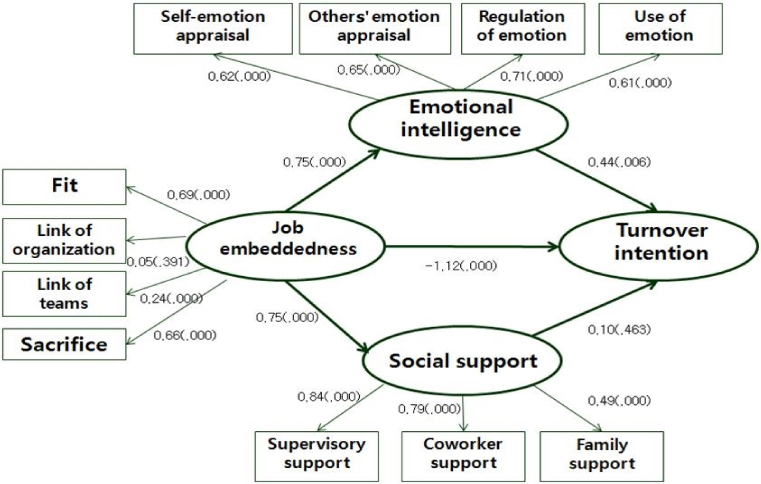Chung-Ang University Hospital, Korea.
Copyright © 2015 Korean Academy of Nursing Administration
This is an open access article distributed under the terms of the Creative Commons Attribution Non-Commercial License (http://creativecommons.org/licenses/by-nc/3.0/), which permits unrestricted non-commercial use, distribution, and reproduction in any medium, provided the original work is properly cited.



JE=job embeddedness; SF=Sacrifice; EI=emotional ingelligence; SE=self-emotion appraisal; OE=others' emotion appraisal; RE=regulation of emotion; UE=use of emotion; SS=social support; SV=supervisory support; CS=coworker support; FS=family support; TI=Turnover intention.
SMC=Squared multiple correlations.
JE=job embeddedness; SF=Sacrifice; EI=emotional ingelligence; SE=self-emotion appraisal; OE=others' emotion appraisal; RE=regulation of emotion; UE=use of emotion; SS=social support; SV=supervisory support; CS=coworker support; FS=family support; TI=Turnover intention.
SMC=Squared multiple correlations.

